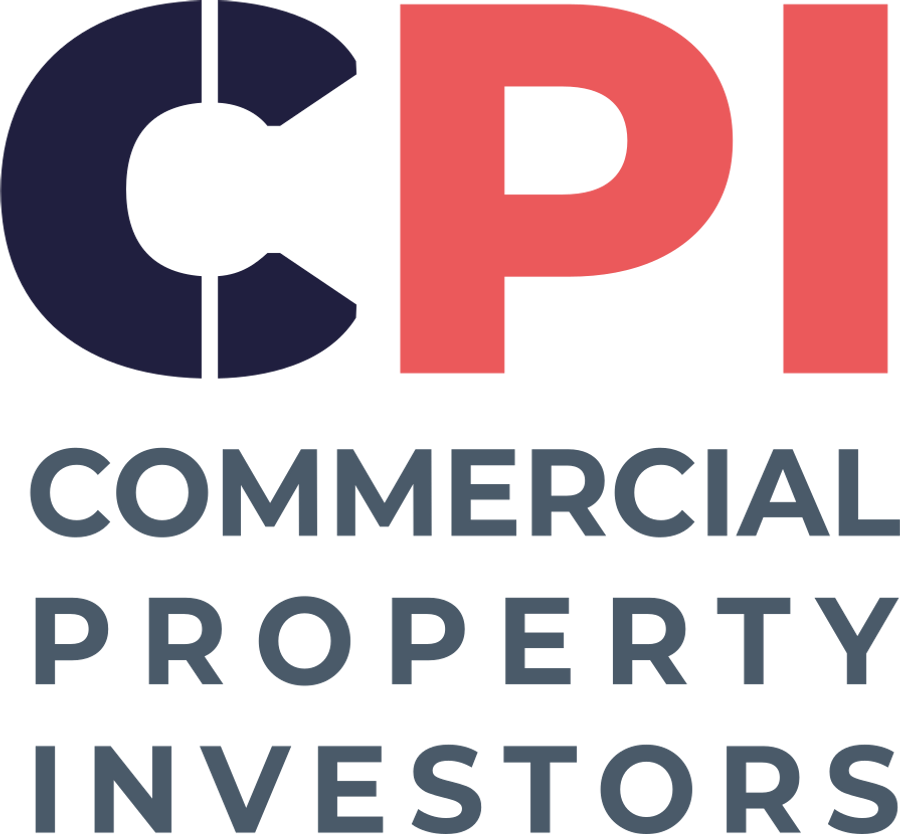These days, commercial property is often spoken about in terms of converting it to residential use, which I totally understand. Commercial to residential development in some circumstances is the most profitable thing to do. However that is not the case with every opportunity.
My goal for getting into Commercial Property investing was to build up a portfolio of cash flowing assets. So let me ask you, “what is your reason for getting into commercial property?”. Sometimes I wonder if people have missed that piece of the jigsaw and are now chasing the next shinny object without realising that course of action changes you from being an investor for cashflow into an outright developer.
Flipping properties and constantly looking for the next deal to keep the machine moving and all the time hitting crystallisation points for tax. Did you get into property to be a developer or did you get into property for cashflow as close to passive as you can get it? If so, then commercial property is a really high cash flowing strategy with lots of value-add opportunities and if done right you can hold on to it.
With commercial property you can start small but over time with careful strategic thinking you can grow your portfolio to become really big. You just need to hold onto assets in order to actually build the momentum.
A lot of my content is focused around finding, developing, holding and operating commercial real estate, not necessarily about selling it. And todays topic is based around our friends in the commercial agent world. I have been asked about dealing with commercial agents on a few occasions recently, particularly in terms of acquisitions. They have been a bit surprised at the responses they have received when trying to engage with agents, or even the lack of them in some instances.
Agents can help with buying, letting, and selling commercial spaces. I have previously mentioned how to access deals through commercial property agents and I want to build on that. As usual it is important to point out, this is all based on my experiences and yours could be quite different. My involvement with commercial agents has been hit and miss over the years. Some instances I have found individuals to be really helpful, upfront and supportive, but on the other hand I have come across many who won’t return my calls or seem as though they are just not interested.
“It doesn’t matter to them which camp they fall into, so don’t let it matter to you. Just continue on and learn how the game works”
Through these experiences though, I have learned it is like a lot of things in life; you have to set your objectives, be pragmatic and not emotional about how people react or treat you, and keep going. Just keep asking yourself “will doing this thing or responding in this way get me closer to my goal?”. If not, then don’t do it and re-access. Sometimes you have to play to peoples egos in order to get to your overall goals. Treat it as a game of strategy and all of the characters have their roles which might be to help you, hinder you or completely and utterly ignore you. It doesn’t matter to them which camp they fall into, so don’t let it matter to you. Just continue on and learn how the game works.
Some of the commercial market challenges
- The market is as clear as mud. It is nowhere near as transparent as the residential market. But that does bring opportunity as deals can be hidden more easily, plus there are less players.
- Investors don’t share experiences
- It is difficult to see what is for sale or if it has sold, or even if the agents want to actually sell anything?
- Agents don’t seem to want to return your calls
- And you can be forgiven for thinking that no-one actually wants to sell anything.
3 levels of deal flow through agents:
- Completely off market deals, an agent will find a buyer from his immediate investor client circle.
- Under the market, these are circulated to other agent buddies, so are not completely off market, but you and I will not see them if we are not on the inside.
- The property doesn’t sell via the first two options so it goes on the open market.
It doesn’t always go this way, but it is good to understand how a big chunk of the commercial deals that private investors might be interested in, come to the market.
We spoke about being focused with our investment criteria, picking a specific area, getting out and actually looking at deals and the power of follow up. If you haven’t listened to that episode yet, then I encourage you to do so.
“what is your goal”? What are you trying to achieve? If you keep that front and centre then your emotions shouldn’t get the better of you and you will be able to decide what is an opportunity or a distraction much quicker”
Let’s get something straight right away. Put yourself in the shoes of a middle aged or maturing commercial agent, who has been working in a specific market for well over 10 years. If the market has been good then you, the agent, will have built your network of sellers, buyers and the movers and shakers in the commercial investment world, or at least that part of the world. So when one of your agent buddies calls you up and say they have a building they want to sell for the best price, that opportunity will be passed around the network and if it doesn’t sell quickly then it will go onto the open market.
Now when one of their buddies calls up and wants to sell something off market, who is the agent going to talk to? Their other close network, of course, and not the person who sent an email last Friday saying they were looking for a great investment opportunity or something else suitably vague.
What has happened is the agent has just become comfortable with the world they have built around themselves and sometimes feel that quite frankly they don’t need you. And that is why sometimes it seems they are not interested in following up with your call or enquiry. It’s not right, but don’t take it personally. Just understand that this is how some of them operate. Not all of them, of course!
Another aspect to be aware of, is that some agents will deal with all aspects including: sales, acquisitions and lettings, but others will specialise in a specific area with just a few clients on retainer. More about that in a second but let’s get back to you and me. Remember to start with: “what is your goal”? What are you trying to achieve? If you keep that front and centre then your emotions shouldn’t get the better of you and you will be able to decide what is an opportunity or a distraction much quicker. Dealing with agents is simply part of the overall picture.
How to talk to agents:
- Always be polite and respectful of their time, but don’t hold yourself back from looking at deals or calling agents because you don’t want to upset the gatekeeper.
- Remember to ask yourself “who is the agent working for?”. So if they are selling a property on behalf of a retained client then they might be all nicey, nicey but at the end of the day their fee comes from the seller. I know it’s a simple thing, but some people forget that.
This leads me onto the retainer that I mentioned earlier. You can put the shoe on the other foot and pay an agent to find you a property. This will mean that they might bring you those off market deals, or at least the under the market deals. It will shortcut the efforts you have to make to get to that level of deal flow. Now agents will charge you lots of different ways, in terms of the retainer fee.
Your job is to negotiate a fee that is fair and reasonable and will serve to motivate the agent to bring you bonafide deals. The best way of course is to have a motivated agent who only charges when you settle on deals. The challenge for them is they have to put the work in up front and in order to do that they need to feel you are actually going to do a deal if they find it. That is the tricky bit when you don’t have a track record. So, you will have to get the balance right here. That fee might typically be 1 or 2 % of the value of the deal?
Incentivising your commercial property agent in more creative ways can be an effective way to sharpen their input. Some purchasers will give them a higher percentage towards the acquisition fee. So, say 1.5% instead of 2.5% but that does not incentivise a good price. It just incentivises the deal flow. The other method that I have used effectively is incentivising them to get below a certain price. This can be done most effectively when you have identified a property. For example, In the early days I wasn’t sure that I could negotiate prices as well as I should (a lack of confidence I guess), so what I did was agreed a fee with an experienced agent for them to act on our behalf but gave an additional £1000 fee for every £10,000 they got off the overall price. From memory, they got the price down a further £30K so we gladly gave an additional £3K fee.
“Incentivising your agent in more creative ways can be an effective way to sharpen their input”
A good agent is worth their weight in gold:
- They will help you find and negotiate a deal and then take it to the heads of terms stage and then hand it over to you and your legal team.
- Even then, they will continue to negotiate on some of other points that will inevitably come up.
- If you present yourself as credible and a long term investor, they will know in the back of their mind that you will buy future deals too. So hopefully they will see you as a potential long term client they can add to that inner network.
- Don’t cut them out of the discussions if you are dealing direct with the seller. You never know when the agent might need to act as a broker for some of the trickier negotiations.
- On one property we bought; about 70% of the negotiations were through the agent, unfortunately we didn’t manage to get the deal done with the seller and it was sold to another company that works on commercial property arbitrage. In other words they buy cash and try to flip really quickly. So, when the dust settled and they couldn’t flip it straight away the agent came back to me, but they knew exactly where we were with the price from our previous discussions so there was no need to start over or mend any bridges that we might have burnt by trying to cut them out of the negotiations before.
I hope some of these tips have helped. It’s always an important topic and I have been asked a few times recently of the deals we have done. About a third of them have involved an agent and they are an integral part of the commercial property market, just as estate agents are to the residential market, so take your time to work out how things work. It is a people business and people buy from people. And less mentioned, people sell to people.
It is important to stress I am talking about the agent relationship from an investor point of view rather than a seller. As I have mentioned before we rarely sell any of our properties to keep the tax take down and our momentum up. Selling property through agents is a different process, however it is still fundamentally built on relationships.
So remember:
Return to your why. What are you wanting out of this activity?
Clarify your deal criteria and translate this into a good brief for an agent.
Reach out to at least 2 new agents over the next few days and start the process.
If you’re looking for inspiration, direction and accountability to get started in commercial property take a look at our Mastermind & Accountability Programme or join the Commercial Property Investor Facebook Group.






